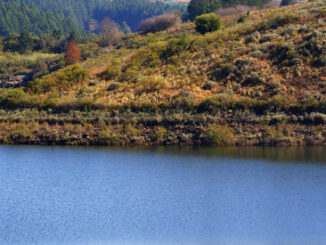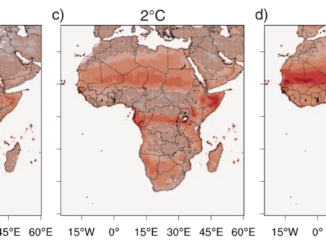
The environment is seen as having a religious dimension that extends beyond its physical outlook in Africa. Many African societies revere the earth and its resources and treat it as sacrosanct. This may issue from their deep sense of appreciation for the numerous services rendered by the environment and its resources in their everyday life activities. To the African, a higher spirit is always responsible for any good deed that is extended to him/her. Therefore, when s/he freely gets assistance to cater for his/her greatest needs of life such as food, clothing, shelter, medicine, and recreation among others, s/he attaches spiritual value to its suppliers which are the environment and its resources.
The Africans do not worship the environment as they would worship the highest spirit who is at the apex of their belief systems, the Supreme Deity. However, they treat the environment and its resources with deep awe and respect. It is believed among many societies in Africa that everything in the environment, the water bodies, trees, animals, stones, rocks, mountains and the many others have spirits or souls residing in them. They believe that it is the Supreme Deity that has given these natural things in the environment as habitats for some spirit beings s/he sent as messengers to assist the human family in their dire situations. This belief is often referred to as Animism. In terms of great storms, the forests serve as wind holders to protect them from the anger of the storms. The leaves, stem, barks, and roots provide them with medicine to cure their ailments while the fruits offer them food. After the performance of rituals and appeasing the spirits believed to be dwelling in the trees, some of them are fell and used for architectural and other utilitarian products. To the indigenous African, the products and services offered him/her by the plants, rivers and other things in the environment are the handiworks of the spirit residing in them. Therefore, it would be improper, or even an act of disrespect and lack of appreciation to wantonly destroy these wonderful resources that have served them and pivoted their life existence.
Out of great appreciation, they treat the earth and its natural resources with the greatest care and gentility. The rivers and water bodies are not defiled in any way whether by bathing in them, tainting its purity with menstruation blood, drowning someone dead in it, urinating or defecating in them or even using poisonous chemicals to fish in them. The water bodies are seen as having spirits residing in them and these spirits will be incensed and vouch their anger on culprits of these environmental malfeasances. This indirectly maintains the purity of the river bodies and the sustainable supply of its anthropogenic and ecological services. The rich abundance of biodiversity and their conservation in most regions in Africa is as a result of the religiosity view of the environment by the indigenous African.
What is the way forward with this sacrosanct view of the environment? Due to the influx of Western religion and education as well as globalization, many Africans who are influenced by these external factors, especially the youth, have dulled the high sense of spiritual values for the environment. This is adversely affecting the sustainability and conservation of the natural resources in the environment. However, in local communities where this religiosity view of the environment is still high, the biodiversity resources are still intact and in their pristine state. This is largely as a result of the stringent sanctioning measures imposed by the traditional councils in the local communities comprising of the ruling chief and his cabinet of elders. Therefore, the environmental agencies and ministries in Africa must allow the traditional councils to operate in full capacities to enforce these cultural beliefs that protect the environment. They can do this by setting a legislation to beef up their powers to sanction culprits who engage in environmentally degrading activities that are seen as defying the sanctity and purity of the environment. Also, assistance in terms of logistics to preserve and propagate this belief in animism must be provided to aid in the maintenance of the buoyancy of the environment and its essential resources.
Proudly WWW.PONIREVO.COM
by Dickson Adom



